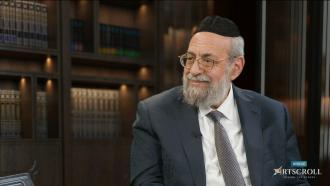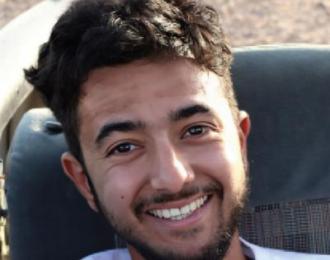The controversial president of the UK’s largest student union has “completely denied the right of Jewish students to define their experiences of antisemitism,” an official from a major British student group said.
Josh Nagli, campaigns director at the Union of Jewish Students (UJS), was responding on Facebook to a recent Guardian interview with National Union of Students (NUS) President Malia Bouattia, who has come under repeated fire for purported antisemitic and anti-Zionist rhetoric.
Asserting that Bouattia must adhere to an NUS policy that “treat[s] racist incidents to be any incident which is perceived to be so by the victim or any other person,” Nagli slammed the student union president for her application of double standards when it comes to Jews.
“If Jewish students believe something to be antisemitic, then it must be considered as such,” he wrote. “[Bouattia] does not accept that just because some Jewish people consider her antisemitic, that means she is. This is, to a certain extent fair, if you do not uphold the…recommendations. But as the interviewer proceeded to ask: ‘Why, then, does she not accord this principle to anyone else?’ One rule for the Jews, another for everyone else.”
Bouattia’s “poor attempts to clarify her past rhetoric are clumsy,” create greater distance between the NUS and Jewish students, he said.
“Does she realize that many Jewish students have fears about going onto campus this year, let alone engaging in NUS’ structures? Does she realize the impact that her election has had on Jewish students?” he wrote.
The NUS — representing 600 student groups and 7 million individuals — is turning into an organization with which “many Jewish students are not invited to engage” under Bouattia’s leadership, Nagli wrote, adding, “It is one where terms like ‘Zionist-led media’ and ‘Zionist lobby’ are clearly accepted.”
Bouattia, Nagli wrote, wasted the “opportunity to look Jewish students in the eye, recognize the problems with [her] past rhetoric and apologize.” The interview with the Guardian was her chance “to reassure the 8,500 Jewish students who will be heading back to campus…that [she is] listening to their concerns, that [she is] actively willing to engage with the issues they’ve raised.”
“But you didn’t,” he wrote, addressing Bouattia. “Again, you have failed Jewish students. Why do you continue to ignore the concerns of Jewish students? Why are you continuing to use Jewish students, their experiences, and crucially, their oppression, as a political stick with which to beat them with? Malia, Jewish students deserve better.”
As reported by The Algemeiner, when Bouattia was elected to the NUS leadership position, she became the center of controversy. Originally from Algeria, she came under fire for previous comments supporting terrorism against Israel and denouncing “mainstream Zionist-led media outlets.” In 2014, while speaking at a “pro-resistance” event celebrating “Gaza and the Palestinian revolution,” for example, she asserted that it is “problematic” to consider that “Palestine will be free” only by means of “non-violent protest,” and bemoaned the fact that “resistance” is presented as terrorism.
She also expressed disappointment that some in the Palestinian camp reject the path of “armed struggle” for various reasons.
In a 2011 article she co-wrote ahead of her assuming the post as NUS president, Bouattia referred to the University of Birmingham as a “Zionist outpost” with the “largest [Jewish Society] in the country,” after taking part in the school’s Israeli Apartheid Week.

















